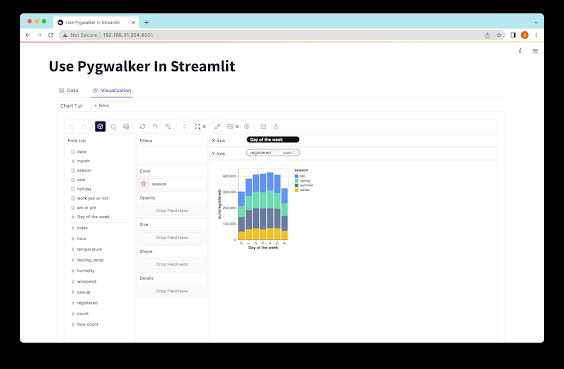Modin: The Ultimate Solution for Speeding Up Pandas
If you're a data scientist or analyst, you've most likely heard of Pandas – the Swiss army knife for data analysis in Python. Pandas makes it easy for users to work with tabular data, analyze it, clean it, and transform it. However, as your data grows, so does the processing time, because Pandas is based on a single-threaded architecture.
To overcome this limitation, Modin was created – a distributed implementation of Pandas that uses Ray or Dask as a task scheduler. Modin optimizes Pandas by using all your CPU cores, speeding up your data analysis operations. Simply put, if Pandas is a bicycle, Modin is a Ferrari.
Pandas has a few limitations that make it challenging to work with large datasets:
1. Single-threaded: Pandas performs on a single core, which limits the processing power.
2. Not Distributed: Pandas is not distributed, meaning it has limitations when dealing with big data.
3. Memory Management: Pandas loads data into memory, which can be problematic when dealing with large amounts of data.
4. Hard to Scale: Scaling Pandas is difficult, at best.
Modin overcomes Pandas' limitations by distributing data processing across multiple cores. Modin maximizes the use of all available CPU cores, speeding up data analysis. Also, by using Ray or Dask, users can scale their workflow with minimal effort. But the best part is – Modin gives users a Pandas API, meaning no new code is necessary to use it.
Getting Started with Modin
Getting started with Modin is easy – you just have to install it. You can install Modin using pip:
pip install modin
Once installed, you can switch to Modin from Pandas by simply adding a single line of code at the beginning of your script:
import modin.pandas as pd
And that's it! Your code remains the same, but Modin handles the execution of Pandas on your behalf.
Let's see how Modin speeds up the execution time using a small example.
Consider the following code that reads a CSV file using Pandas:
import pandas as pd
df = pd.read_csv('large_file.csv')
With this code, Pandas reads the entire file into memory before beginning analysis. That can take a while, depending on the file size. With Modin, the same code becomes:
import modin.pandas as pd
df = pd.read_csv('large_file.csv')
And this time, Modin reads only a portion of the file into memory, which speeds up the process considerably. Modin automatically synchronizes the operations on each partition and merges them afterward, producing a single output.
But that's not all – Modin also optimizes the execution of common Pandas operations like groupby, aggregate, and merge. For example, the code:
df.groupby('category').sum()
becomes:
df.groupby('category').sum()
with Modin, resulting in a significantly faster execution time.
Modin Performance Benchmarks
The primary benefit of Modin is that it speeds up the time required for data preprocessing and analysis. But how much faster is Modin compared to Pandas? The answer depends on the size of the dataset, available memory, and CPU cores.
To evaluate the performance of Modin, we used the well-known NYC Taxi Dataset, which is 465 GB when uncompressed. We compared the time taken to calculate the average fare amount over all trips using Pandas and Modin, using Google Compute Engine VM with 64 CPU cores and 491 GB of memory.
The results were impressive – Modin showed an 18x speedup compared to Pandas. Pandas required around 6.5 hours to process the required task, while Modin took only 21.3 minutes.
Conclusion
If you work with large datasets, you won't find a better solution than Modin to speed up your data analysis. By distributing data processing across multiple cores, Modin saves time and optimizes Pandas' limitations. You can get started with Modin by adding only one line of code, given it has a Pandas API.
Modin supports the most important Pandas functionalities, so you won't have to change your code when switching to Modin. With impressive results documented, this tool has much to offer. It's optimized for big datasets, which makes it ideal for data scientists, engineers, and software industry professionals alike. You can read more about Modin on their official documentation page.
Therefore, if you want to work smarter, not harder, Modin is a must-have tool in your arsenal.

Comments
Post a Comment